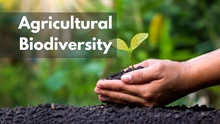
Established in 1972 during the United Nations Conference on the Human Environment held in Stockholm, World Environment Day has grown to become a powerful vehicle for encouraging worldwide awareness and action for the protection of our environment. Since its first celebration in 1973, World Environment Day has continued to drive meaningful conversations and inspire change.
Land Restoration, Desertification, and Drought Resilience
For 2024, the chosen theme is "Land Restoration, Desertification, and Drought Resilience." It is particularly timely and critical, given the alarming statistics and projections about land degradation and drought.
According to the UN Convention to Combat Desertification, up to 40% of the planet's land is degraded, directly affecting half of the world's population. The frequency and duration of droughts have surged by 29% since 2000. Without urgent action, these figures could escalate dramatically, with droughts potentially affecting over three-quarters of the world's population by 2050.
The selection of this theme is pivotal to the urgent need to address these interconnected issues. Land degradation often leads to reduced agricultural productivity, loss of biodiversity, and increased vulnerability to climate change. Desertification exacerbates these problems, resulting in diminished water resources, food insecurity, and forced migration.
By focusing on land restoration and building resilience against drought, World Environment Day 2024 aims to catalyze global efforts to reverse these trends and promote sustainable land management practices.
The Background and Importance of Land Restoration
Land restoration involves recovering the ecological integrity of degraded land. This process can rejuvenate soil health, enhance biodiversity, and improve water cycles, thereby increasing the land's resilience to climate impacts. Effective restoration practices include reforestation, sustainable agriculture, and conservation of natural habitats. These practices not only restore ecosystems but also offer socio-economic benefits, such as improved livelihoods and enhanced food security.
Addressing Desertification
Desertification is the process by which fertile land becomes desert, typically as a result of drought, deforestation, or inappropriate agriculture. It is a severe form of land degradation that impacts millions of people worldwide, particularly in arid and semi-arid regions. Combatting desertification involves a combination of preventative and rehabilitative measures. Sustainable land management, afforestation, and the use of drought-resistant crops are some strategies to mitigate desertification.
Building Drought Resilience
Drought resilience is the capacity to anticipate, prepare for, and respond to droughts. Building resilience involves implementing measures that reduce vulnerability and enhance the ability to recover from droughts. This includes improving water management systems, adopting drought-resistant agricultural practices, and investing in early warning systems. By increasing resilience, communities can better cope with the adverse effects of droughts and maintain their livelihoods and ecosystems.
Raising Awareness and Mobilizing Action
The day fosters awareness through campaigns, events, and educational programs that highlight the importance of sustainable land use and the dangers of neglecting land health. It also mobilizes action by encouraging governments, organizations, and individuals to adopt and promote practices that restore land and build resilience against climate-related impacts.
Promoting Environmental Sustainability
World Environment Day 2024 calls for a collective commitment to environmental sustainability. It underscores the importance of restoring degraded lands and implementing practices that ensure the long-term health of our ecosystems. This commitment is crucial for achieving broader environmental goals, such as the United Nations Sustainable Development Goals (SDGs), particularly those related to life on land (SDG 15), climate action (SDG 13), and zero hunger (SDG 2).












